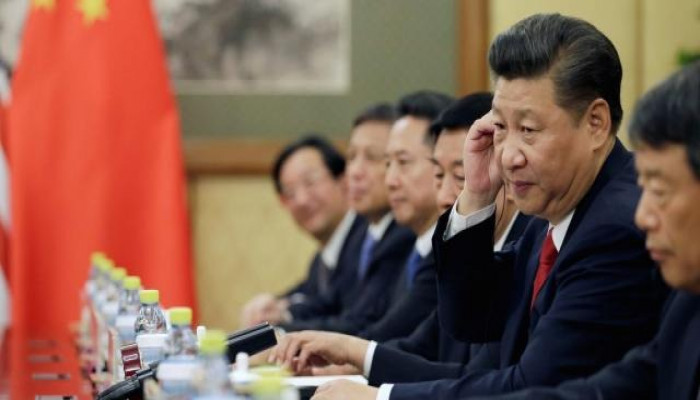China's 'shadow reserves' concealing $3 trillion pose threats to global economy: US former Treasury official
- In Reports
- 04:28 PM, Jul 01, 2023
- Myind Staff
According to a recent analysis by former Treasury Department official Brad Setser, approximately half of China's currency reserves are allegedly "hidden," raising concerns about potential risks to the global economy. Despite China's official report of $3.12 trillion in foreign assets as of last December, Setser estimates that the actual foreign exchange reserves could be around $6 trillion. This revelation has sparked discussions about the implications and potential consequences of China's undisclosed reserves.
He wrote in The China Project, “China is so big that how it manages its economy and currency matters a lot to the world. Yet over time the way it manages its currency and foreign exchange reserves have become much less transparent – creating new types of risks for the global economy.”
China's foreign exchange reserves have been a subject of interest due to a notable change in their reported activity. Between 2002 and 2012, these reserves experienced consistent growth as China's central bank purchased US dollar assets to control the appreciation of the yuan and maintain competitive export prices. This strategy helped to stabilize China's economy and bolster its global trade position.
But in the past 10 years, China’s reserves stopped growing, which is puzzling because China’s trade surplus has been growing steadily, and is currently at an all-time high, he said.
Brad Setser, a former Deputy Assistant Treasury Secretary for International Economic Analysis and now a Senior Fellow in International Economics at the Council on Foreign Relations, provides valuable insights into the situation regarding China's reported foreign exchange reserves.
“Just as China has ‘shadow banks’ – financial institutions that act like banks and take on the kind of risks that a bank might normally take but are not regulated like banks – China has ‘shadow banks’. ‘Whatever China does in the market is no longer reflected in the PBOC’s balance sheet,’ he added.
According to Brad Setser, a renowned expert in international economics, China's state banking system plays a crucial role in concealing its reserves. This system includes state commercial lenders like the Bank of China, Industrial and Commercial Bank of China (ICBC), China Construction Bank, and Agricultural Bank of China, as well as policy banks such as China Development Bank and Export-Import Bank of China.
When contacted for comment, China's Foreign Exchange State Administration did not provide an immediate response to Insider's inquiry. The significant size of China's reserves holds considerable influence in financial markets and poses potential risks.
“The lack of transparency in China is a problem for the world,” he said. “China is structurally so central to the global economy that whatever it does, seen or unseen, will ultimately have a huge impact on the rest of the world.”
Image source: Business News







Comments